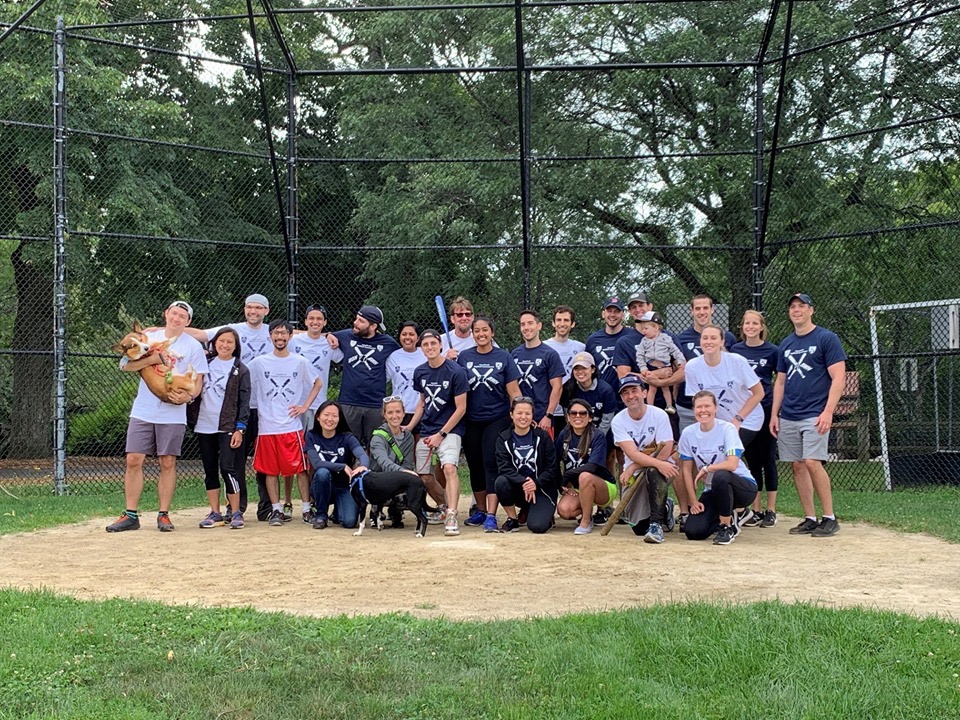Wellbeing
From Theory to Practice
Ensuring the wellbeing of our residents is extremely important to us. Work-life balance is an important start, but we believe that it’s not enough. Work itself should also be fulfilling. Our model focuses on promoting wellbeing through work-life balance and by promoting intrinsic motivation and purpose at work. We draw heavily from Self-Determination Theory, one of the most empirically-backed theories of intrinsic motivation and wellbeing. The theory describes three basic psychological needs (a sense of control, a sense of effectiveness, a sense of relatedness) that individuals need for psychological wellbeing.
When these basic needs are met, people thrive. Below are some of the specific ways we strive to meet these needs.
"Self-Determination Theory"
The body of work that has informed self-determination theory has developed over the last five decades, led to great extent by psychologists Edward Deci and Richard Ryan.
Read more at selfdeterminationtheory.org if you are interested in learning more.
A Sense of Control
People have a need to feel that have some control over their lives and their behaviors. Being a resident (which for many residents is their first paid job that dictates what you do) can feel very controlling. We introduce choice and control to our residents from the start of residency.
- Choice: Whenever we can, we give residents choice and preferences. Before making rotation assignments, we ask about interests and professional goals, which gives residents an active hand in steering their development. We also always push for transparency; if choices are not available, we make sure residents know why.
- Elective-NOS: This program of single day electives is introduced from early in residency and aims to solidly put residents in the driver seat of fulfilling their growth needs. CA1s can take advantage of one-on-one teaching in the ORs or early exposure to some of our advanced rotations. Our senior residents have access to a number of advanced choices, like TEE, Root-Cause-Analysis and more. Read more about this program at the bottom of this page.
- A focus on intrinsic drives: Medical training has unfortunately (we believe) focused heavily on extrinsic motivators (test scores, evaluations, etc). While well intended, these de-emphasize the reasons we actually went into medicine and typically don’t lead to the best outcomes (learning or wellbeing). We de-emphasize extrinsics and focus instead on how meaningful it is to care for people and how satisfying it is to learn and grow for ourselves.
- An active voice in our department: We actively seek feedback from our residents, who in turn help us shape and improve the program. Our residents have a strong voice in our department and program. They are active members of our Education Committee, Quality and Safety Improvement Committee, Wellness Committee, and Program Evaluation Committee.
A Sense of Effectiveness
People have a need to feel competent and effective as they develop mastery over tasks that are important to them.
- Challenges at the right level: Our rotation deployment is very deliberate. We start you on rotations and with cases where you are most likely to face challenges that you can overcome. That’s where learning is best. As your skills develop, we send you out to progressively more advanced rotations.
- Mentorship: Every resident picks their own mentor, based on their growth needs and personality fit. We send robust communications to the residents and mentors after each Program Director meeting. We also pay for you to go out for dinner with your mentor up to twice yearly to get the support you need.
- Meaningful positive feedback: We spend substantial effort with our residents in decoding and reflecting on themes in your feedback comments. We find that often residents are too hard on themselves and focus only on what needs to be improved. That’s a great focus for growth, but we also think it’s important to keep an eye on all the great things you’re already doing that should be maintained!
- Resources to be effective: To feel effective you have to have a place that gives you the resources to be supported. Suffice it to say that we have many many resources for our residents that we love to dole out. In addition to educational allotments, we buy you books, we have a robust travel support fund for conference attendance, a resident research grant fund, funding for global health travel, and more. We also have a great network of caring individuals who can provide non-clinical mentorship. This includes our nationally recognized Centers of Expertise.
A Sense of Relatedness
It is important for people to feel connected to others – a sense of belonging.
- Our residents have yearly retreats for community building, an annual softball game, a summer barbecue, and a fall wine tasting for residents and mentors.
- We also have social events for the whole department that are coordinated with our Wellness Committee. These include wine tasting, apple picking, an annual dance, and more.
- We even have a yearly outing for the anesthesia and surgical residents together, to build community “across the drapes.”

Elective NOS – an active role in customizing your educational experience
In addition to elective months, residents get a number of days throughout residency (called “Elective NOS” days) where they can select the learning experiences that best fit their needs.
CA1s can pick any OR or non-MOR anesthetizing site where an attending is scheduled to work alone. They then get dedicated one-on-one teaching with that attending with the location and cases they picked!
CA2s and CA3s can pick from a number of other options including a day doing awake bronchoscopy in the internventional pulmonology clinic, a day performing root-cause analysis on an actual OR case, an administrations/operations day with our Associate Director of Perioperative Services, a day with the cardiopulmonary perfusionists, and more.